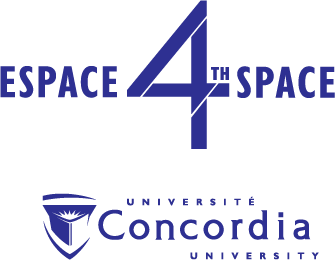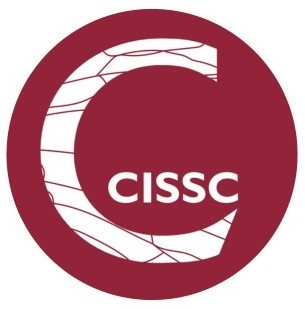Morris Fox is a queer settler-Canadian artist and poet. His creative research explores queer and ecological grief, cruising sites, and the necro-inflected side of camp political-aesthetics—or queer gothic sensibility—through craft, virtual reality, and poetry. He chaired a panel on queer grievance at the 2024 Universities Art Association of Canada conference, and his forthcoming chapter in Home and Craft (Bloomsbury) explores early modern queer floriography. His work has been exhibited across Canada and internationally, including Spring Awaits (Wick Gallery, Minneapolis, 2025), Cruise-ading (Concordia Library, 2024), and bad 2 the bone with QSO (the plumb, Toronto, 2023). His artistic research has been featured in Esse (2025) and tba journal (2024). Fox is a founding member of the queer arts collective Queer Soft Orange (QSO) and an active participant in the Queering Nature Working Group. Fox is a PhD candidate in Interdisciplinary Humanities at Concordia.
Wild Kin: A Queer Ecologies Symposium
December 11, 2025 at Concordia University
Join us for a symposium exploring how queer ecology—and the arts—can reimagine kinship, healing, and ecological belonging in response to intensifying anti-trans, homophobic, and gender-restrictive legislation.
About the symposium
Rooted in queer theory, environmental justice, ecofeminism, ethnobotany and Indigenous knowledge systems, queer ecology offers tools to challenge colonial and heteronormative narratives of nature. This afternoon will include presentations by leading thinkers in the field of Queer Ecology, along with a graduate student-led panel, and roundtable discussion. These interdisciplinary conversations will address speculative botany, queer intimacy, multispecies kinship, and grief.
Anchored in the Fall 2025 solo exhibition Hot House / Maison chaude by Aaron McIntosh, Wild Kin: A Queer Ecologies Symposium is a hybrid-access conference co-hosted by 4th Space and FOFA Gallery. This event is free and open to the public. No registration is required for in-person participation. All panels will be live-streamed and archived online through 4t Space's platform.
Join us online starting at 1pm by registering for the Zoom Meeting or watching live on YouTube.
Schedule for December 11, 2025
| 12:30 – 13:00 | Welcome arrival for coffee & snacks |
| 13:00 – 13:20 | Introductory remarks - Doug Moffet & Aaron McIntosh |
| 13:20 – 14:30 | Morris Fox Hailey Guzik Abi Hodson |
| 14:30 – 14:45 | Snack break |
| 14:45 – 16:15 | Catriona Sandilands The Institute for Queer Ecology |
| 16:15 – 17:00 | Roundtable Discussion - “Intimate Encounters and Collective Survival” - with all panelists |
| 17:30 – 19:00 | Closing Reception: Hot House/Maison Chaude |
Speakers & Organizer
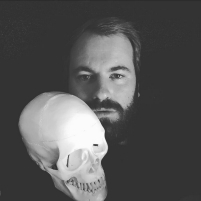
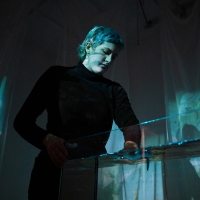
Hailey Guzik (they/them) is an interdisciplinary artist based in Tiohtià:ke/Mooniyang/Montreal whose work explores the entanglements between cultural systems, environmental crisis, and queerfeminist technologies. Working across painting, new media, and immersive audiovisual installation, their practice investigates the possibilities of plant-human interaction and speculative worldbuilding as a form of ecological care. Their work has been presented at institutions across Canada, including Fonderie Darling, Confederation Centre Art Gallery, and MUTEK, with support from ArtsNB, the Canada Council for the Arts, and CALQ. Their SSHRC-supported MFA research extends their interest in technoscientific ecologies through a queerfeminist lens.
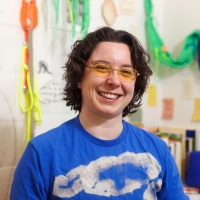
Abi Hodson is a transdisciplinary artist based between Tiohtià:ke/Montreal and Kjipuktuk/Halifax. Rooted in collage, video, movement, and textiles, their practice explores the relational nature of bodies—intimate, collective, and more-than-human. Hodson's ongoing research into “creatur-ing” the body involves transforming human limbs through costume, sculpture, and site-responsive video, inviting new, wild forms of kinship between beings, materials, and the lands we inhabit. Guided by sensation, play, and eerie delight, they create participatory spaces for collaboration and community-building, often through zine-making and relational workshops. Hodson’s work invites us to inhabit other ways of being—curious, porous, and creaturely. They are pursuing an MFA in Fibres & Material Practices.
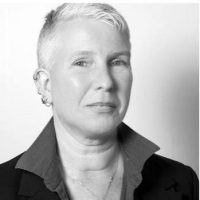
Catriona (Cate) Sandilands is Professor in the Faculty of Environmental and Urban Change at York University. Her research and teaching span environmental humanities, ecocriticism, queer, multispecies and feminist ecologies, critical plant studies and botanical biopolitics, public humanities, and creative writing. Sandilands’ pioneering work helped establish queer ecology as a vibrant interdisciplinary field. Among the first scholars to bridge queer theory and environmental studies, her writing includes the edited collection Rising Tides: Reflections for Climate Changing Timesand the co-edited anthology Queer Ecologies: Sex, Nature, Politics, Desire. Her new project Plantasmagoria: Botanical Encounters in the (M)Anthropocene brings together creative nonfiction and critical essays on plant politics, environmental history, human/plant encounters, plant fictions, and everyday botanical relationships as elements of multispecies environmental justice.
The Institute of Queer Ecology (IQECO) is a collaborative organism that seeks to bring peripheral solutions to environmental degradation into public consciousness. Its projects build on queer ecology as a practice concerned with interconnectivity, intimacy, and multispecies relationality. The collective works to overturn destructive human-centric hierarchies by imagining an equitable, multispecies future. IQECO has worked with over 120 artists to present interdisciplinary programming that oscillates between curating exhibitions and directly producing artworks and projects. It has presented work with the Guggenheim Museum (New York), the Institute of Contemporary Art (Miami), the Julia Stoschek Collection (Düsseldorf), the Medellín Museum of Modern Art, the Museum of Contemporary Art Belgrade, the Biennale of Sydney, Prairie (Chicago), Bas Fisher Invitational (Miami), Gas Gallery (Los Angeles), and Vox Populi (Philadelphia), among others. IQECO was founded in 2017 by Lee Pivnik at the Rhode Island School of Design and is co-directed by Nicolas Baird.
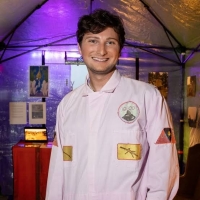
Lee Pivnik is a Miami-based artist working in sculpture, video, and social practice. He holds a BFA in Sculpture with a concentration in Nature-Culture-Sustainability Studies from the Rhode Island School of Design. In 2022 he attended the Immersion Program at The School of Architecture in Arcosanti.
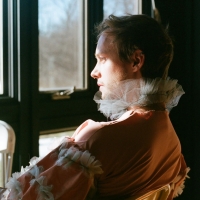
Nicolas Baird is a biologist, artist, writer, and dancer based in New York City. His scientific research and art practice consider evolutionary relationships between bodies and landscapes, coevolution, and multispecies adaptation. He is a doctoral candidate in Paleobiology.
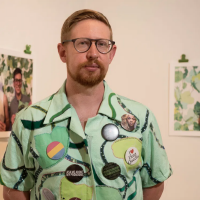
Aaron McIntosh is a cross-disciplinary artist and fourth-generation quiltmaker whose work mines the intersections of material culture, family tradition, sexual desire and identity politics. His exhibition record includes numerous solo and group exhibitions, most recently The Gloaming at Pierre-François Ouellette art contemporain, Entanglements at Northeastern University, and Radical Tradition: Quilts and Social Change at the Toledo Museum of Art. Since 2015, McIntosh has managed Invasive Queer Kudzu, a community storytelling and archive project across the 2SLGBTQ+ Southern United States. He is a 2020 United States Artist Fellow in Craft, and other honors include a 2017 Virginia Museum of Fine Arts Fellowship, and two Windgate Fellowships in 2006 and 2015 from the Center for Craft. His current research-creation project, Hot House / Maison chaude, has been supported by a 2020-2023 SSHRC Insight Development grant. He has held residencies at the Oak Spring Garden Foundation, Banff Centre, Haystack Mountain School of Crafts and the Virginia Center for Creative Arts. His critical writing has been published in the Brooklyn Rail, Hyperallergic, the Surface Design Journal, and the Journal of Modern Craft.
Panel abstracts
“Pansies, A Brief History”
This talk explores the pansy as both queer floriography and gothic weed, tracing its entangled meanings across art, gardening erotics, and camp aesthetics. The pansy appears as a tenacious weed, a symbol of queer persistence, and a remembrance flower marking sites of homophobic violence. In this talk, I follow the pansy's shifting significations—alongside related flora like creeping charlies and graveyard flowers—as they reappear in my own art practice, transfigured into steel, rust, and fragrance. Drawing on the necropastoral, the shrinking violet, and Heather Love’s concept of “backwardness” as a queer aesthetic of melancholic failure, I deploy pansy-ness as a framework for ecological and queer grief. Attending to the pansy’s dual status as slur and emblem, my analysis weaves together readings of my own work with key cultural texts, including Caspar Heinemann's Fucking Pansies. I also ask what decolonial approaches to floral imagery might offer as alternatives to hetero-settler green idylls, homophobic victimhood, and the sentimentality often associated with flowers. Through an eco-gothic and camp sensibility, this presentation reclaims the pansy as a site of queer remembrance, resistance, and creeping survival.
“Queerfeminist Technogardening”
This presentation draws from Hailey Guzik's ongoing research into interactive and immersive plant-human systems, and the potential they hold as speculative tools for ecological remediation and worldbuilding in the digital age. Framing the technogarden as a site of mutual interdependence between nature, humans, and machines, the presentation develops a queerfeminist eco-politics rooted in art practice. Guzik traces connections between gardening methodologies, critiques of technoscience, and the speculative ethos of solarpunk—offering a vision for environmental care at the end of the world. Through rhizomatic, sympoietic, and diffractive approaches to both real and virtual plants, Guzik's work demonstrates how algorithmic disruptions and queerfeminist tactics can give rise to adapted living systems. These systems challenge normative relationships to labor, nature, and futurity, imagining a post-scarcity, post-capitalist, post-heteronormative world. Their contribution brings together queer ecology, immersive media, and speculative design as intertwined strategies for environmental and social transformation. Guzik contributes critical insights into posthuman intimacies, interactive ecologies, and speculative gardening as forms of queer ecological resistance and reimagination.
“Bitter Fruits: Cultivating Delicious Futures”
Can bitterness help us reframe queer ecological relations as messy, non-innocent, and affectively complex? My talk explores the sensory and ecological entanglements of bitter-tasting plant compounds and their implications for queer ecological thought. Humans have evolved an unusually high number of bitter taste receptors, developed in relation to the toxic or defensive strategies of plants. Yet many bitter compounds—initially deterrents—have become culinary pleasures. What does it mean when one organism's defense becomes another’s delight? Drawing on Kadji Amin’s notion of “deidealization,” I probe bitterness as both a boundary and a point of transgression, asking how sensory experience can unsettle narratives of harmony and idealism in ecological thinking.
“Urticacious Intimacies, Queer Ecologies”
Nettles and people have a complicated relationship. Despite their talent for renovating human-disturbed places, nettles are often unwelcome in exactly these places because of their sophisticated, poison-delivering stingers. Drawing on recent works that explore queer and trans multispecies encounters and identities through field-based and creative research, and employing what I call “botanical autoethnography,” this talk pauses in different moments of “urticacious intimacy” to reflect on what it means to live in and with nettles as storied and storying long-term companions. Might we become better at imagining queer identifications and worldings by attending to the embodied stories nettles tell us about our shared lives? Might queering our encounters with nettles help us move into more generous, cosmopolitan futurities with them and with other species with whom our lives are enmeshed, however prickly these relations might be?
“Mutability & Mutualism”
Queerness and ecology together make visible the interconnected, entangled conditions of life on earth and honor the strange, multispecies amalgamation we live in community with. To make sense of the broad constellation of practices that emerge from queer ecology, IQECO examines two scales: the individual and the collective. At the scale of the individual—the organism—queerness is mutability: the power of transformation, shapeshifting, mimicry, delight, subtlety, grace, and the embrace of fluidity. It stands in contrast to rigidity, permanence, and stasis. It is metamorphosis and constant becoming. At the scale of the collective—the ecosystem—queerness is mutualism: symbiotic, relational, economically eccentric, and rooted in mutual support, found families, utopian dreams, care, and connection. It is a world shaped by cooperation. On a rapidly changing planet, queer mutability and mutualism can guide us toward adaptation and survival. IQECO considers the influence of these principles on their work across visual art, evolutionary biology, environmental activism, ecology, and queer theory.
Acknowledgements
The Queer Ecologies Symposium was made possible through the support of:

